British Airways could be using sustainable aviation fuel produced in the UK within the next few months following an agreement with one of world’s biggest oil refiners, Phillips 66. It will be produced and blended at Phillips 66’s Humber Refinery in north-east England from waste cooking oils, and supplied to London airports via the existing pipeline infrastructure. The SAF is expected to reduce lifecycle emissions by over 80% compared to the traditional jet fuel it replaces. Phillips 66 has 13 refineries in the United States and Europe, with a global refining capacity of 2.2 million barrels of crude oil per day. It is transitioning to a low-carbon future and last year announced plans to convert its Rodeo refinery in California into the world’s largest renewable fuels plant. The Humber Refinery, which employs over 1,000 workers, started production of renewable diesel in 2018, becoming the first in the UK to convert waste oil into road fuel. In November 2020 it took delivery of a new processing unit to convert used cooking oil (UCO) into low-carbon fuel. The refinery is situated very close to the proposed Velocys facility that will convert municipal solid waste to jet fuel for British Airways.
The airline said the purchase agreement of 36,000 tonnes of SAF with Phillips 66 Limited, a wholly-owned UK subsidiary of Phillips 66, would reduce lifecycle emissions by almost 100,000 tonnes, the equivalent of powering 700 net zero CO2 emissions flights between London and New York on its Boeing 787 aircraft.
The Humber Refinery’s UCO module increased renewable diesel capacity this year to 3,000 barrels per day (BPD) from 1,000 BPD and the company plans to further expand capacity to 5,000 BPD by 2024.
Added a spokesperson for Phillips 66: “While the UCO module will be an important part of our SAF supply, we will also be producing SAF via other production pathways at the refinery.”
The refinery, which Phillips 66 says is one of the most complex in its portfolio and one of the most sophisticated in Europe, has a crude oil processing capacity of 221,000 BPD. It produces some 14 million litres of fuel per day, some of which is sold at its JET branded petrol stations and also jet fuel to airlines, as well as raw materials that can be transformed into a range of other products, including into essential components for electric vehicle batteries.
“The refinery was the first in the UK to co-process waste oils to produce renewable fuels and now we will be the first to produce SAF at scale, and we are delighted British Airways is our first UK customer,” said Humber Refinery General Manager Darren Cunningham. “We are currently refining almost half a million litres of sustainable waste feedstocks a day, and this agreement demonstrates our ability to supply them.”
The Humber Refinery is one of three investment partners in the Humber Zero project for large-scale decarbonisation in the immediate region and incorporates a cluster of local energy-intensive industries that make up more than 20% of the local economy and one in 10 jobs, and lie 1km from the North Sea coastline on the south bank of the River Humber. By 2030, Humber Zero aims to remove up to 8 MT/CO2 annually by integrating carbon capture and storage, alongside green and blue hydrogen production, into these existing, co-dependent industries. As well as decarbonising local industry, it is expected to provide hydrogen power for over one million local homes.
“This agreement with British Airways aligns with our strategy to create a refinery of the future, where we’re producing fuels from waste, being a critical part of the electric vehicle supply chain, reducing the carbon intensity of our processes through carbon capture and using hydrogen to power the refinery,” said Cunningham. “It secures long-term business in an ever-changing world.”
British Airways and Phillips 66 are members of the UK Department for Transport’s Jet Zero Council Delivery Group, with both supporting government plans for a future SAF blending mandate and a business model for investing in advanced waste-to-jet fuel projects.
“The UK has the resources and capabilities to be a global leader in the development of SAF and scaling up the production of SAF requires a truly collaborative approach between industry and government,” said British Airways Chief Executive Sean Doyle.
“We are excited to develop our relationship with Phillips 66 Limited further with a view to growing production capacity and using a wider range of sustainable waste feedstocks to supply our future flights. The development of SAF is a major focus for us and forms part of our commitment to achieving net zero carbon emissions by 2050 through a series of short, medium and long term initiatives.”
BA’s parent company IAG pledged two years ago to invest a total of $400 million on alternative sustainable fuel development over the following 20 years. Its Altalto Immingham project with Velocys aims to convert over 500,000 tonnes each year of non-recyclable household and commercial solid waste into sustainable aviation fuel, which would be supplied via the same pipeline as for the Phillips 66 fuel. According to an investor statement from Velocys last month, depending on progress of UK government policy and the project going ahead, commissioning and startup would commence in 2027, with full-scale commercial operation to follow that same year.
In February, British Airways announced it was to invest in SAF technology provider and SAF producer LanzaJet’s first commercial-scale Freedom Pines Fuels facility in Georgia, USA. The deal includes purchase of SAF to power a number of BA flights from the US from late 2022 and early-stage planning of a potential commercial-scale biorefinery in the UK. This would be produced using LanzaJet’s alcohol-to-jet process, which can use any source of sustainable ethanol, including, but not limited to, ethanol made from non-edible agricultural residues such as wheat straw and recycled pollution. LanzaJet, which is involved in three UK projects, and British Airways are also partnering with Nova Pangaea Technologies on ‘Project Speedbird’ to develop the first SAF facility in the UK to utilise woody residues from the UK, which aims to produce 100 million litres of SAF per year by 2025.
The purchase agreement with British Airways follows a Phillips 66 memorandum of understanding signing with Southwest Airlines in April this year “to advance the commercialisation of sustainable aviation fuel, focusing on public awareness and research and development.” The MoU also includes both sides exploring a future SAF supply agreement involving Phillips 66’s renewable fuels Rodeo Renewed project in California. The facility is expected to be capable of producing an initial 800 million gallons per year of renewable fuels and, subject to permits and approvals, could be completed in early 2024.
Photo: The Phillips 66 Humberside Refinery
MORE BRITISH AIRWAYS NEWS →

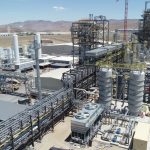
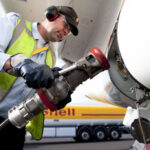





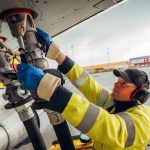
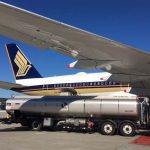







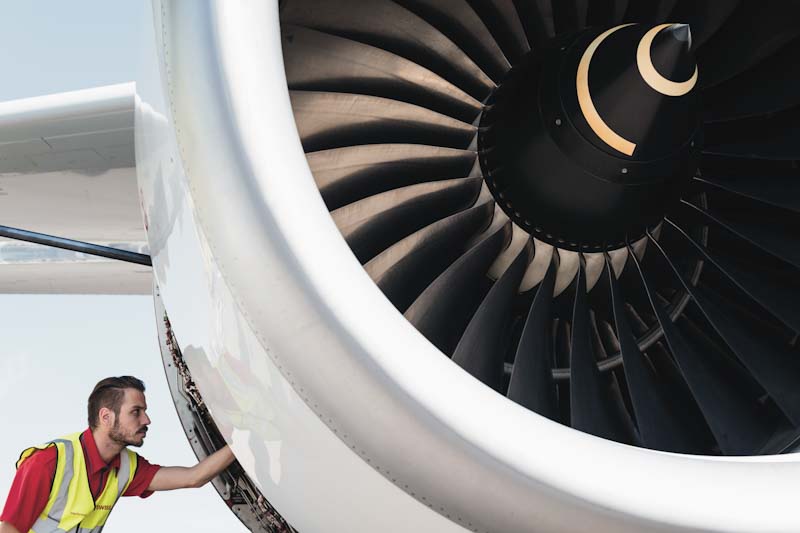

More News & Features
Lessons learned from the collapse of Fulcrum BioEnergy
Early data shows uncertainty that UK SAF mandate can be met in its first year
Swiss advanced SAF technology startups Metafuels and Synhelion reach project milestones
PtX fuels have significant Asia-Pacific potential but face many barriers, finds report
Airfreight giants DHL Express and FedEx announce big US SAF deals
Asia-Pacific study reveals pessimistic outlook for SAF uptake by 2030 as Singapore details levy